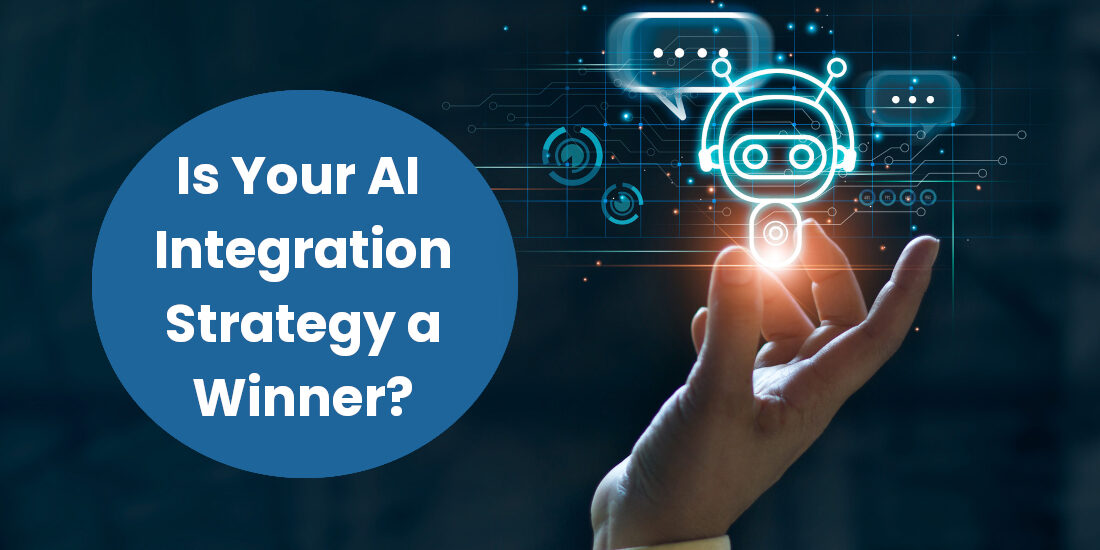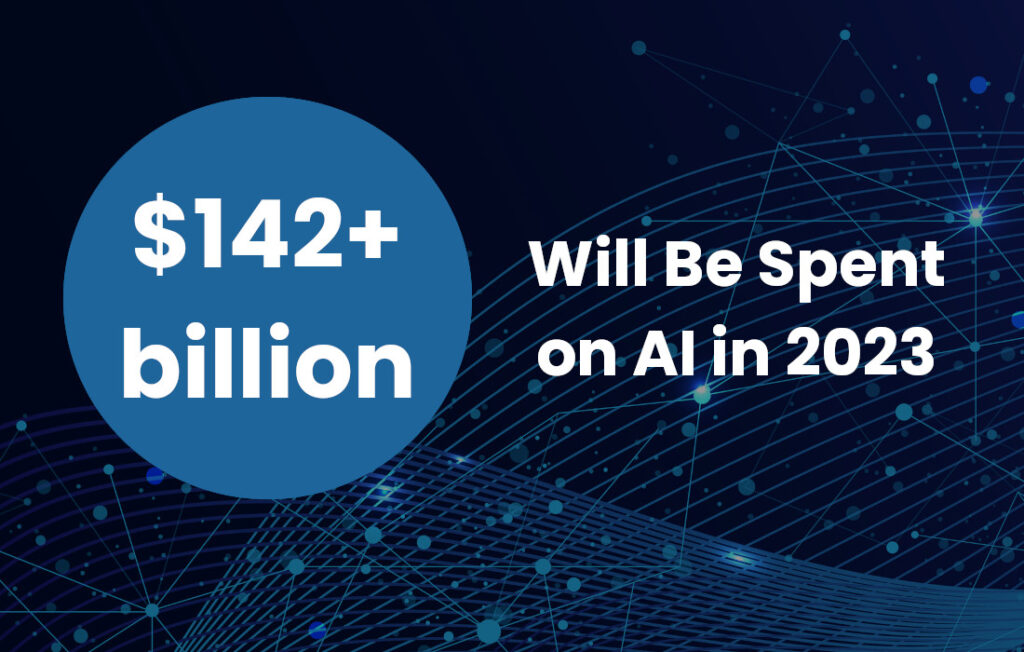Artificial intelligence — better known as just AI — has emerged as the latest and greatest buzzword in the business world lexicon. Across all industries, business leaders are eager to integrate AI into their technology infrastructure. This has led many down the wrong path; a novel approach that entails implementing AI for the sake of implementing AI. Unfortunately, this strategy — if you can even call it that — rarely brings good results with a solid ROI. These AI implementations are commonly amidst the 7 in 10 projects that fall into the realm of failed Digital Transformation projects. This all begs the question: How do you deploy AI integration services in a manner that brings good results and generates a healthy ROI?
What Are AI Integration Services?
AI integration services involve the deployment of artificial intelligence — which is often paired with machine learning (ML) capabilities — in a manner that enhances your existing technology. Machine learning-powered AI can bring tremendous benefits, especially over time, since ML can be used to improve the artificial intelligence algorithm. The end result is a self-improving technology that generates a ROI that actually increases over the long term.
As the term suggests, AI is integrated with the organization’s existing technology; it’s not typically deployed as a stand-alone. Integrations are inherently challenging because you have multiple enterprise systems that must be made to “play well” together. This is why it’s important to select a Digital Transformation partner with extensive experience in the development and deployment of AI integration services.
AI Implementation Strategies: A Problem and Solution Approach
The most successful AI deployments entail a problem → solution strategy. At its most basic level, this approach involves the identification of a problem, challenge or roadblock and then, implementing AI in a manner that solves a problem or helps you to avoid a specific pitfall.
To prepare for an AI implementation project, you must clearly articulate a use case with the “problem.” Then, develop a solution that leverages machine learning-powered AI technology. Keep in mind that AI is not always the best solution. This is why it’s important to work with an experienced Digital Transformation development company; one that can recommend the best solution for your unique needs.
Considering the Ethical and Legal Implications of AI Integration Services
It’s prudent to consider the legal and ethical implications of your AI use case. There is an inherent element of risk associated with artificial intelligence and other Digital Transformation projects, so you must take time to carefully consider the dynamics surrounding an AI implementation.
Your AI integration project should be carefully considered as part of your organization’s broader Digital Transformation risk management efforts too. Artificial intelligence is being used in new ways, which is great when viewed through the lens of innovation. But this also means that you’re far more likely to encounter unforeseen ethical and legal snares. Therefore, a bit of extra consideration is required so that you can deploy machine learning and AI solutions with confidence.
 User Testing and Training for AI Integration Services
User Testing and Training for AI Integration Services
User testing and user training are both critical to the success of an AI implementation project. Thorough testing by actual end users is key. In some cases, comprehensive training is equally important if you are going to see maximum user adoption rates and a healthy ROI.
Many AI deployments are more complementary in nature, running in the “background” so to speak. For instance, a pre-existing chat feature may be augmented with machine learning-powered AI technology to create a tool that engages users in a more relevant, nuanced manner. In this case, users may not need to receive training since they’re already familiar with the chat feature. But user testing is important for ensuring that everything functions as expected when the chat feature is put through the paces.
AI integration services can be transformative, with machine learning driving your technology forward in a way that improves efficiency, productivity and profitability. The key is to use the right technology in the right way for your unique challenges and objectives. An experienced Digital Transformation partner will deploy AI for a specific use case; one that will generate a healthy ROI.
Deploying Machine Learning and AI in Shipping and Logistics
There are countless ways to deploy AI and machine learning technology. The key to success is to identify a problem, challenge or a process that represents an opportunity for improvement and then, develop AI technology to meet that need. The 7T development team uses this problem → solution approach as we deploy machine learning-powered AI for clients in a variety of different industries.
The Digital Transformation development team here at 7T is guided by the approach of “Digital Transformation Driven by Business Strategy.” As such, the 7T development team works with company leaders who are seeking to solve problems and drive ROI through Digital Transformation and innovative business solutions such as multimodal machine learning-powered AI implementations.
7T has offices in Dallas, Houston and Austin, but our clientele spans the globe. If you’re ready to learn more about AI development solutions, contact 7T today.


 User Testing and Training for AI Integration Services
User Testing and Training for AI Integration Services







